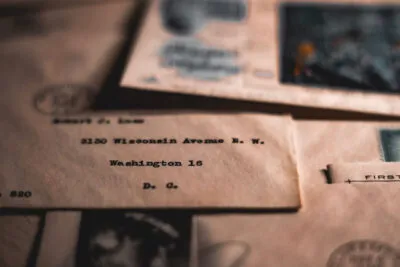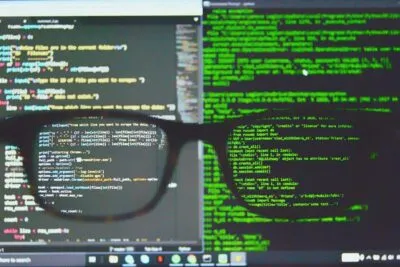
- Originally Published on May 11, 2023
What to Do If You Have Been Doxxed
Doxxing, the act of sharing someone’s personal information without their consent, has become a widespread and dangerous problem, especially with the prevalence of social media and easy access to information. As a result, it is important to know what to do if you have been doxxed.
If you have been doxxed, here are some steps to take to protect yourself and your personal information:
- Gather and preserve evidence of the doxxing;
- Report the incident to social media platforms (if your personal information was published);
- Contact law enforcement or your local FBI office to report the doxxing, and
- Contact a content removal attorney to remove personal information from the internet.
At Minc Law, we have extensive experience in helping people overcome a wide range of online harassment and privacy issues, including doxxing. As doxxing has become a rising issue in recent months, we understand the devastating impact it can have on an individual’s privacy and safety. That is why we work to combat doxxing and help our clients regain their security. We offer a range of tools, including Digital Risk Protection plans, online reputation management, and legal services, to provide comprehensive solutions to doxxing and other online attacks.
In this article, we will discuss what doxxing is, why it is a problem, and, most importantly, what to do if you have been doxxed.
What is Doxxing?
Doxxing has become increasingly prevalent in recent years. It is alarming to note that around 21% of Americans, which amounts to over 43 million people, have fallen victim to this invasive practice. What is particularly concerning is that while more than half of doxxing attacks originate from interactions with strangers online, almost 1 in 4 perpetrators are acquaintances or people known to the targets.
Doxxing, also known as doxing, is the act of gathering and publishing private or identifying information about an individual on the internet, often with malicious intent. The term “dox” is slang for “documents,” and the practice may have originated from the phrase “dropping documents.”
While doxxing was initially used by hackers, it has become more widespread and can now be perpetrated by anyone with access to the internet.
What Does Doxxing Typically Look Like?
Doxxing involves publicly releasing an individual’s private and personally identifying information, such as their full legal name, home address, phone number, and email address.
This practice is often used to reveal previously unknown information about someone, including celebrities, social media influencers, and even government officials or law enforcement officers.
High Profile Doxxing Incidents
An example of doxxing could be when a user hides their identity online while posting their opinions, only for another user to uncover their real identity and post it online.
Another example is when hacktivist groups like Anonymous release the personal information of KKK members to expose them.
The highly publicized “Cecil the Lion” incident is another well-known example of doxxing, where the individual responsible for shooting the lion was publicly identified online. The release of this person’s private information led to significant backlash and condemnation.
Organizational doxxing is another form of doxxing, and it refers to the release of private information about a company or organization.
One high-profile example of this is the Ashley Madison hack, in which a group of hackers gained access to the user database of the infidelity website and publicly released the personal information of millions of users. This incident not only violated the privacy of millions of individuals but also had significant consequences for the company’s reputation and financial stability. The Ashley Madison hack highlights the importance of strong cybersecurity measures and the potential risks of storing sensitive information online.
How Does Doxxing Work?
To execute doxxing, perpetrators can use various tactics such as tracking usernames across multiple accounts, stalking individuals on social media, phishing email scams, and accessing data broker sites. Public or government records, such as marriage licenses and birth certificates, can also be used to obtain personal information.
These tactics highlight the potential dangers of oversharing personal information online and the importance of protecting one’s digital footprint.
What Kind Of Information is Usually Used to Dox Someone?
Doxxing involves the gathering and public disclosure of personal or private information about an individual. This can include identifying information such as a person’s address, phone number, or true identity.
Often, this information is obtained from social media accounts, where individuals may unwittingly share personal details such as their location, workplace, friends, photos, likes and dislikes, places they have visited, the names of family members, and even the names of their pets.
For this reason, it is important to be mindful of the information we share on social media and take steps to protect our personal information to reduce the risk of being doxxed.
How Do Doxxers Access Your Information?
Doxxers employ various methods to obtain personal information about their targets. This includes social engineering techniques, such as tricking individuals into revealing sensitive information or bypassing security measures, as well as data breaches that allow hackers to gain access to vast amounts of personal data.
Doxxers may also use techniques such as combing through social media profiles, tracking IP addresses, and buying data from data brokers to gather information about their targets.
Our experienced team can help you reclaim your privacy & peace of mind.Are you the target of doxxing?
Who Should Be Concerned About Doxxing
Doxxing is a threat that can affect anyone who uses the internet, regardless of their background, profession, or social media usage. Whether you are a public figure or a private individual, there are steps you can take to protect your online identity and minimize the risk of being doxxed.
Who Are the Most Common Targets Of Doxxing?
Doxxing is a form of online harassment that can affect anyone, but some groups are more commonly targeted than others. This includes government officials who may be targeted by “vigilante” hackers, public figures, social media influencers who can become targets of internet trolls, and online content creators such as OnlyFans models who may publish content under a pseudonym to protect their privacy.
According to a recent study by SafeHome.org, one in five Americans has been a target of doxxing, highlighting the widespread nature of this issue.
What is the Most Common Aim Of Doxxing?
The primary aim of doxxing is to publicly expose personal information about an individual, leading to harassment, threats, or harm to the person or their loved ones. Doxxing can be used as a tool to silence or intimidate those with opposing viewpoints, leading to online mobs and even physical harm.
In the aftermath of George Floyd’s death, public officials like police officers have also become common targets of doxxing – causing harm not only to the individuals exposed but also to their families. There have been calls to make doxxing of public officials a criminal offense to deter this harmful practice.
Why is Doxxing Dangerous?
Doxxing poses a significant danger to individuals as it involves the public disclosure of personal information without their consent. This information may include sensitive details such as home addresses, phone numbers, and employer information.
The purpose of doxxing is often to harass, intimidate, or threaten the individual, which may lead to stalking or even physical harm. In addition, doxxing can result in negative consequences for the victim’s personal and professional life, including loss of employment opportunities and damage to reputation. It is a serious violation of privacy and can even result in identity theft.
Legal Protections Against Doxxing
Legal protections against doxxing are still a developing area with laws that are not well-established or comprehensive. While government officials may have some limited options for criminal prosecution, individuals who have been doxxed may need to rely on content removal and reputation management to mitigate the harm.
In cases where the doxxer is not anonymous, the victim may have the option to pursue civil claims such as invasion of privacy or intentional infliction of emotional distress.
Is Doxxing a Federal Crime?
While there are no specific federal laws against doxxing, there are related offenses that can be used to prosecute doxxing, especially if it is committed against a government employee. Two federal statutes are often used to charge individuals who are guilty of doxxing.
The first statute (18 U.S. Code §119) prohibits the release of personal information of government officials or their family members. The second statute (18 U.S. Code §2261A) makes it unlawful to use electronic communication services to harass or intimidate others. Moreover, doxxing a government employee could potentially fall under federal conspiracy laws.
A federal conviction could result in serious consequences, such as imprisonment and fines. However, the severity of the offense depends on the type of information disclosed. For instance, revealing someone’s real name may not be considered as serious as releasing someone’s social security number.
What Are the Laws Against Doxxing?
Doxxing is not explicitly unlawful in most jurisdictions since there are no specific anti-doxxing laws. In other words, doxxing must be assessed on a case-by-case basis. While it is generally legal to compile and publish publicly available information, doxxers can be charged with other crimes.
In the United States, the laws regarding doxxing vary by state. For instance, Nevada recently passed a bill that prohibits doxxing and allows victims to take civil action against the perpetrators. In California, cyber harassment, including doxxing, with the intent to harm the victim or immediate family, can result in up to a year in county jail or a fine of up to $1,000, or both.
Whether doxxing is unlawful or not depends on various factors, such as the type of information released and the person being doxxed. For example, the address of an individual is generally considered public information and may not afford much protection under the law. However, private information like banking details or a birth certificate may be protected.
Also, those who are doxxed may be able to pursue civil action for invasion of privacy or intentional infliction of emotional distress. However, the latter is a challenging legal standard to meet.
What to Do If You Have Been Doxxed
When you have been doxxed, your response should be guided by the degree of threat the doxxer poses. If the information released is not sensitive and does not pose any risk of physical or emotional harm, it may be sufficient to block the doxxer and ignore their actions. This approach can be effective in denying online harassers the attention they crave.
However, if the information is sensitive and could expose you to harm, you may need to consider a more serious response, such as contacting law enforcement or seeking legal action to protect yourself.
Gather Evidence
If you have been doxxed, the first step is to gather as much information as possible. This includes taking a screenshot or downloading the page where the doxxing occurred and recording the timestamp and URL of the message or site. Also, be sure to save copies of any harassing messages.
This information can be crucial in helping law enforcement or investigators identify and locate the individuals responsible for the doxxing. It is important to take these steps even if you do not feel immediately threatened, as the doxxing could be just the beginning of a larger attack.
Report Doxxing on Social Media Platforms
If the sensitive information was posted on a social media platform, the next step is to report the doxxing to the platform. Most social media platforms have specific policies against doxxing, and they may remove the offending content.
How to Report Doxxing on Facebook
Meta, the parent company of Facebook, does not explicitly use the term “doxxing” in its privacy violations policy. However, the company states that it considers sharing “personally identifiable information” about others a violation of its community standards.
Facebook reviews all content against its community standards and may remove private information, such as home addresses, that could result in physical harm unless the information is publicly available through legitimate sources like news coverage or press releases. Facebook users have access to a reporting channel specifically designed for concerns related to privacy on the platform.
How to Report Doxxing on TikTok
TikTok’s community guidelines explicitly prohibit doxxing, which is defined as the collection and publication of an individual’s personal information for malicious purposes. Users who come across doxxing on the platform can report it through a specific reporting system and follow the instructions provided.
How to Report Doxxing on Twitter
Twitter provides its users with the ability to report other users who tweet private information and media about someone else without permission. This can be done by clicking on the three dots in the corner of the offending tweet, selecting “Report Tweet,” and following the instructions provided. Users can also file a separate form to report doxxing and other policy violations on Twitter.
Any user found to be in violation of Twitter’s policy is required to remove the offending content and may be temporarily locked out of their account. A second violation may result in permanent suspension from the platform.
Contact Law Enforcement to Report Doxxing
If the doxxing has revealed your personal information and you feel that it could potentially put you in harm’s way, it is crucial to reach out to law enforcement, such as your local police department, and report the incident. Make such to bring any documentation of the doxxing with you.
You can also report doxxing to the FBI through their Cyber Crimes unit.
Contact a Content Removal Attorney For Sensitive Content Removal
If you have been doxxed and feel threatened, seeking help from a content removal attorney can be a good option. They can help you understand your legal rights and options to put an end to the harassment.
At Minc Law, we are well-versed in internet-related privacy issues and can navigate the complexities of online harassment and stalking laws. We offer a variety of tools, such as Digital Risk Protection plans, online reputation management, and legal services to help you combat doxxing and regain your security.
Other Actionable Steps to Take If You Have Been Doxxed
In addition to the steps already outlined, there are other actionable steps you can take if you have been doxxed to protect yourself and mitigate the harm caused by the exposure of your personal information. Here are a few more things to consider doing.
Protect Your Financial Accounts & Private Information
If your bank or credit card information was revealed, contact your financial institutions immediately to report the breach and take steps to increase security, such as changing passwords.
Additionally, block the doxxer from all social media sites and adjust privacy settings to protect yourself from further exposure. Most social media platforms provide information on how to increase account security.
Seek Emotional Support From Loved Ones
It is important to talk to someone you trust about your experience and feelings. Being heard and receiving emotional support can help alleviate the anxiety and stress caused by doxxing. Consider reaching out to a close friend or family member or seeking professional counseling if necessary. Remember, you are not alone in this experience.
Take a Break From the Internet
Consider taking a break from the internet if you have been doxxed. It can be challenging to disengage from online spaces when harassment is occurring, but it is important to prioritize self-care. Sometimes, stepping away can even cause the harassers to move on due to diminished returns.
However, it is also important to harden defenses, such as removing documents and taking countermeasures like registering for privacy services or changing contact information.
In severe cases, it may be necessary to ask others to monitor your social media to ensure that you do not return to a reputation in tatters.
Go Somewhere Safe If Your Home is Under Threat
If you feel threatened in your own home due to doxxing, it is important to prioritize your safety and consider finding a safe place to stay. Your safety is paramount, and taking measures to protect yourself is not an overreaction if you feel your security may be compromised.
In severe cases, law enforcement may suggest leaving your home and may be able to assist you in finding a secure location.
Minc Law’s Solutions for Victims of Doxxing
Minc Law offers a range of solutions for victims of doxxing, including content removal based on privacy claims and possible intentional infliction of emotional distress claims.
Additionally, we provide online reputation management (ORM) services to help repair and suppress any damage caused by doxxing and Digital Risk Protection plans to monitor online activity and potentially catch harmful content before it surfaces on search engines.
However, the most effective remedies will vary depending on the nature of the doxxing and the specific circumstances of each case.
★★★★★
“Minc law set the bar for professionalism throughout my experience with them. They responded within minutes for the majority of my requests or concerns. I highly recommend them for their services and appreciate how they made the experience very personal and attentive.”P.N.
Dec 23, 2021
To schedule your initial, no-obligation case evaluation, contact us by calling (216) 373-7706, speaking with a Chat representative, or filling out our online contact form.
This page has been peer-reviewed, fact-checked, and edited by qualified attorneys to ensure substantive accuracy and coverage.



